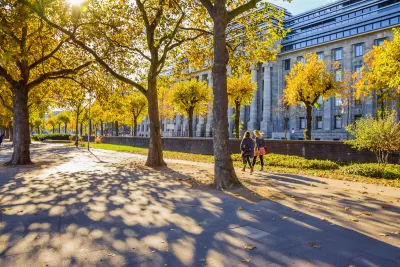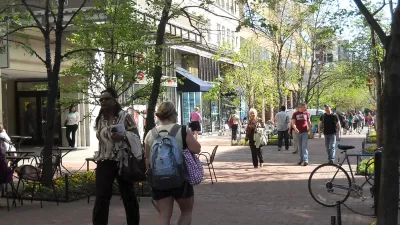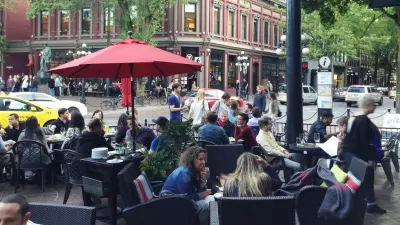With more and more people living in cities, designing equitably healthy urban spaces becomes a key question for policymakers.

“Not all urban areas are created equal, and this can have a big impact on a person’s health. Air quality, heat, food—these are just some of the ways your environment can influence health. Often, it is the poorest areas of a city that have the most negative impact,” writes Rob Reddick in Wired.
Reddick argues that understanding these disparities is increasingly urgent as the world’s urban population is projected to double by 2050. In an interview with Wired, researcher Tolullah Oni describes her research into cities and public health, saying, “I realized we needed to understand the epidemiology of the urban context as the main propagator of diseases.”
As Oni explains, urban planning and design affects everything from air quality to temperature to risk of injury on roadways. For Oni, “Often with developers of public spaces it’s a sin of omission rather than of commission.” In many cases, “What is rarely apparent is what the health cost is, because that cost is born in a different sector and often at a different time.”
Because of the structural scale of the problems, Oni says, “governments have the mandate to ensure health for all. They can’t really absolve any responsibility from that.” Even when development is largely left up to the private sector, “government is responsible also in the legislation holding the private sector accountable.”
FULL STORY: Where You Live Is As Important As What You Eat

Planetizen Federal Action Tracker
A weekly monitor of how Trump’s orders and actions are impacting planners and planning in America.

Canada vs. Kamala: Whose Liberal Housing Platform Comes Out on Top?
As Canada votes for a new Prime Minister, what can America learn from the leading liberal candidate of its neighbor to the north?

The Five Most-Changed American Cities
A ranking of population change, home values, and jobs highlights the nation’s most dynamic and most stagnant regions.

Op-Ed: Why an Effective Passenger Rail Network Needs Government Involvement
An outdated rail network that privileges freight won’t be fixed by privatizing Amtrak.

‘Quality Work, Fast’: NC Gears up for Homebuilding After Helene, Trying to Avoid Past Pitfalls
The state will field bids to demolish, repair and rebuild homes in the mountains. After struggles in eastern NC, officials aim to chart a different course.

Washington State’s Parking Reform Law Could Unlock ‘Countless’ Acres for New Housing
A law that limits how much parking cities can require for residential amd commercial developments could lead to a construction boom.
Urban Design for Planners 1: Software Tools
This six-course series explores essential urban design concepts using open source software and equips planners with the tools they need to participate fully in the urban design process.
Planning for Universal Design
Learn the tools for implementing Universal Design in planning regulations.
Central Transportation Planning Staff/Boston Region MPO
Heyer Gruel & Associates PA
Institute for Housing and Urban Development Studies (IHS)
City of Grandview
Harvard GSD Executive Education
Regional Transportation Commission of Southern Nevada
Toledo-Lucas County Plan Commissions





























